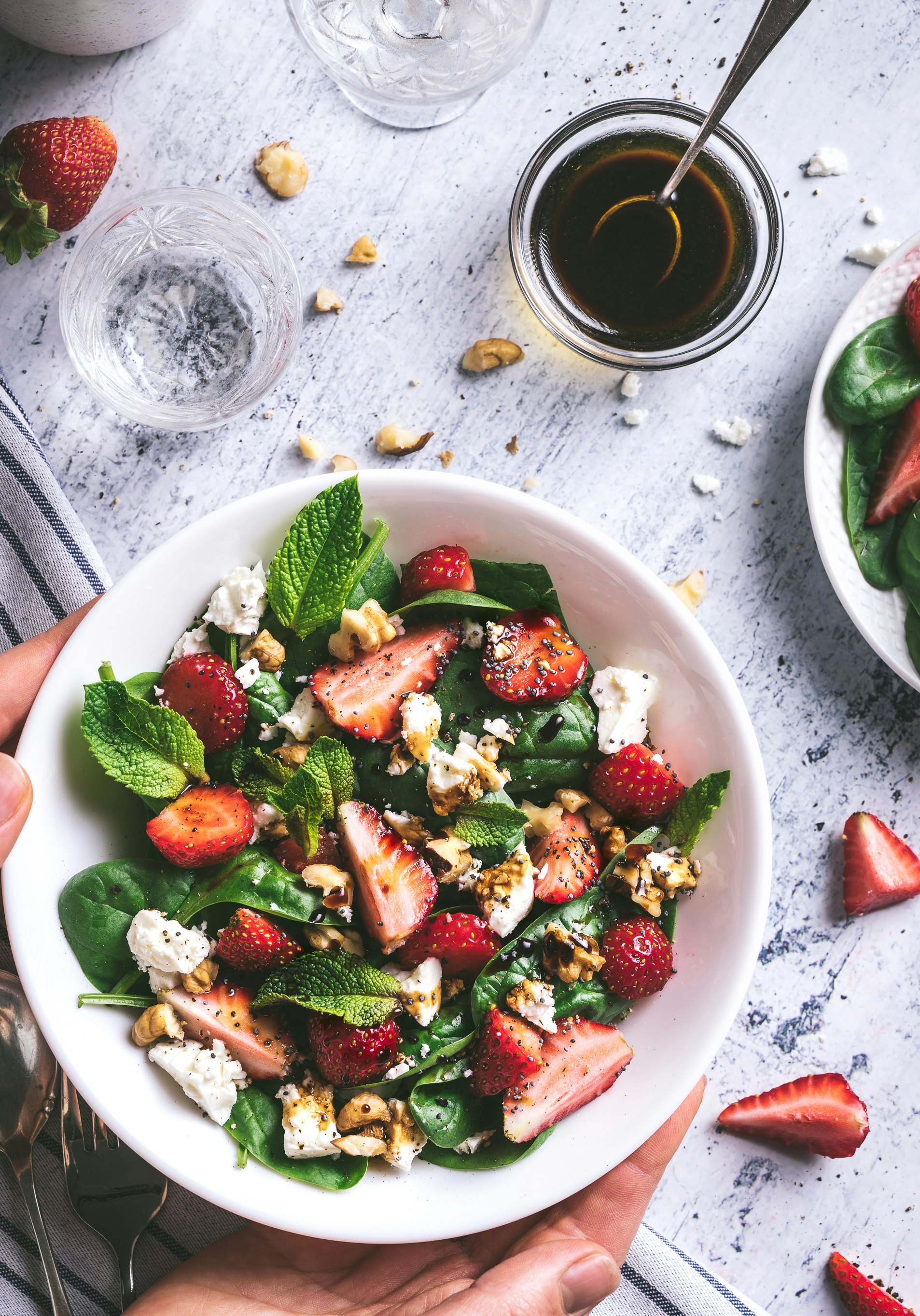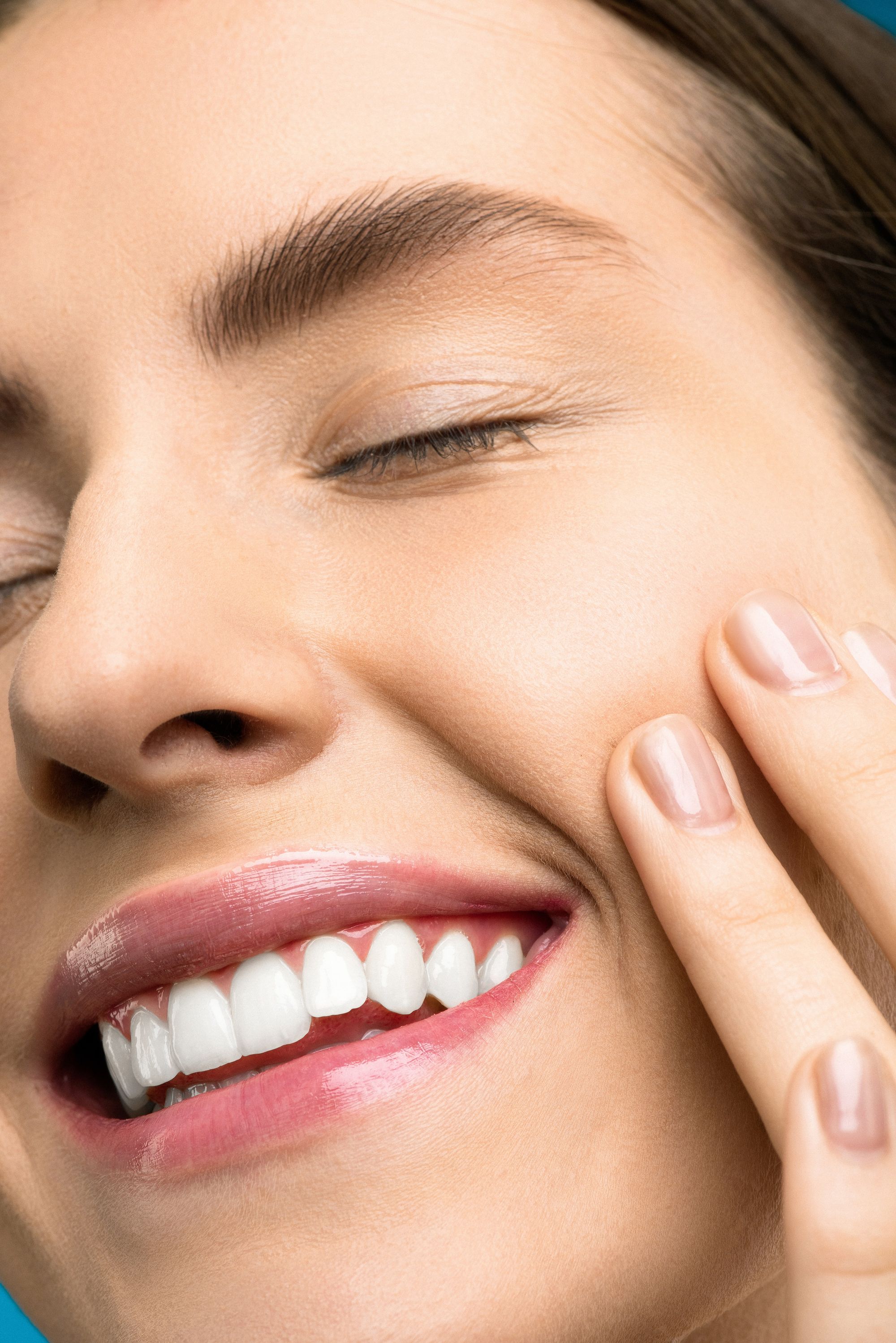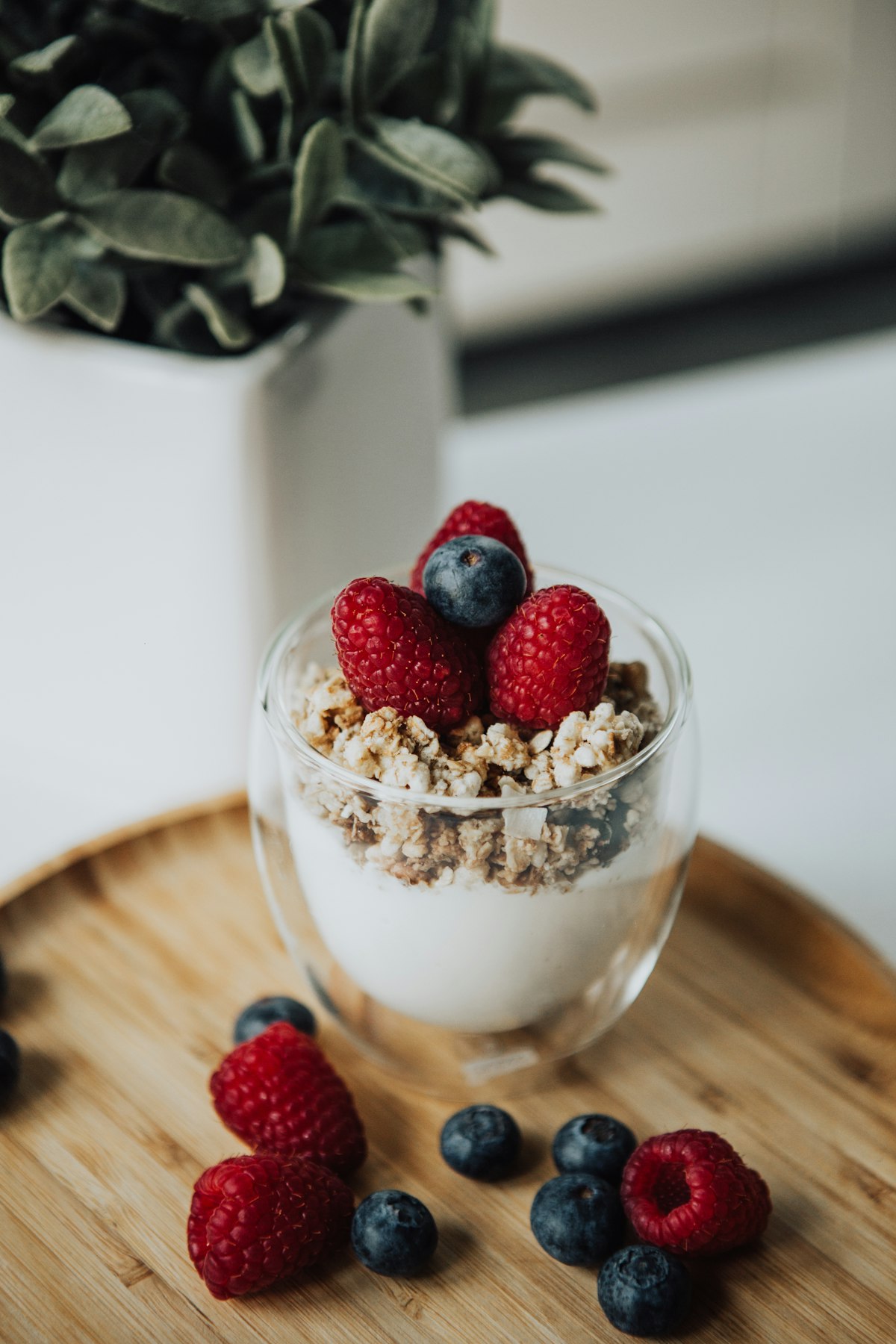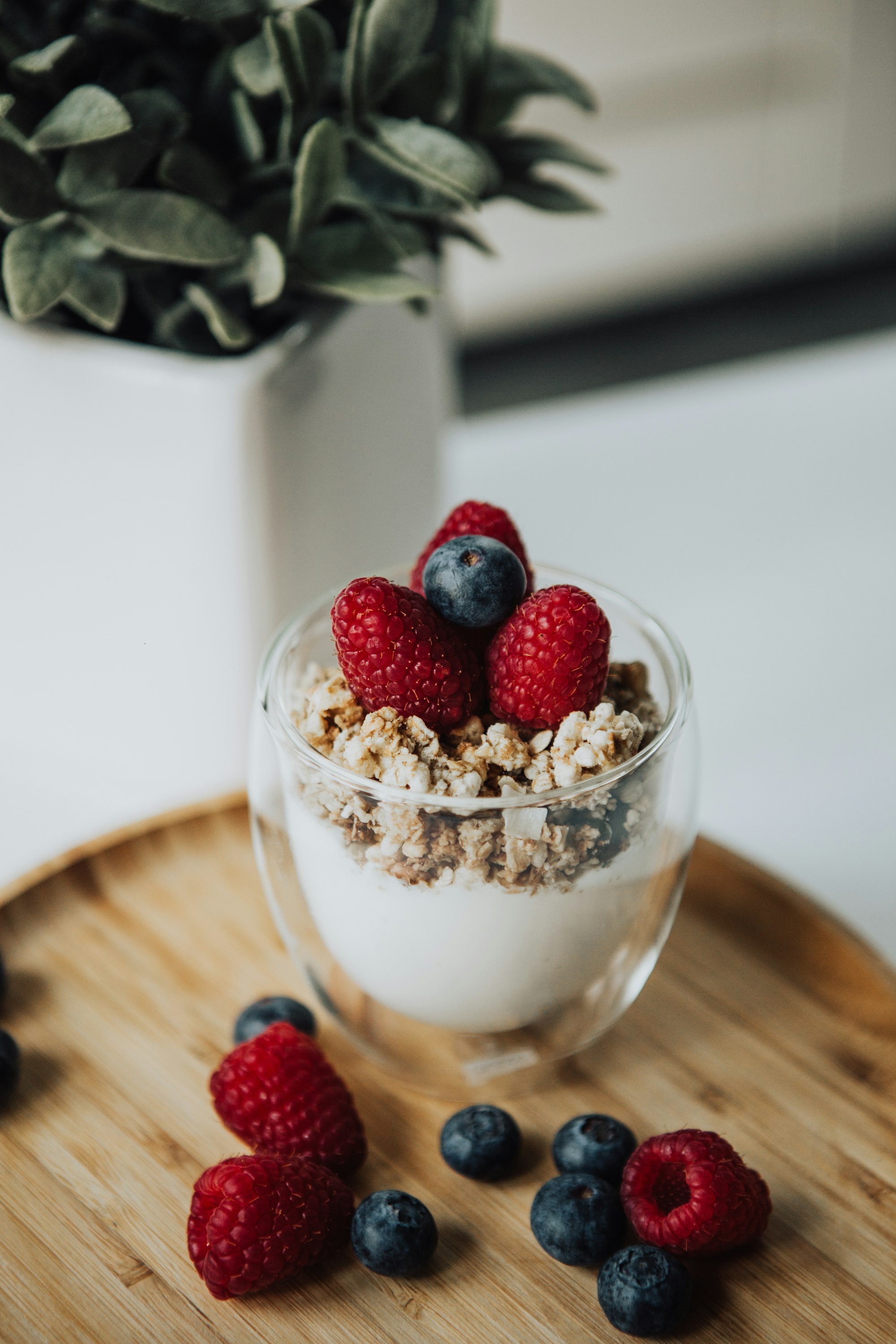Content Summary
Probiotics have gained significant attention in recent years for their potential health benefits. While commonly associated with digestive health, the impact of probiotics extends far beyond the gut. Research has uncovered a compelling connection between probiotics, overall gut health, and oral health.
This article explores the role of probiotics in promoting a healthy gut and how it influences oral health. We delve into the difference between probiotics and prebiotics and provide a list of foods rich in probiotics.
Understanding Probiotics
Probiotics are live microorganisms that confer health benefits when consumed in adequate amounts. These friendly bacteria and yeasts can help maintain the balance of the gut microbiota, which plays a crucial role in various bodily functions. Probiotics can be found naturally in certain foods or can be taken as dietary supplements.
How do Probiotics Work?
Probiotics work by restoring balance to the microbiome the collection of all microorganisms living in or on the human body. Our mouths are home to billions of these microbes, many of which are essential for good oral health. When the balance of microbes in the mouth is disrupted for example, by overuse of antibiotics or other medications dental problems can arise. Probiotics can help to restore this balance by replenishing the population of good oral microbes.
The Benefits of Probiotics
There are many benefits to probiotics, both for oral health and overall health. Probiotics have been shown to reduce plaque and gingivitis, promote gum health, prevent cavities, and even improve bad breath. Probiotics can help to regulate blood pressure, reduce inflammation, boost immunity, and aid digestion. By keeping your microbiome healthy and balanced, you can enjoy better overall health and a lower risk of serious chronic diseases.
The Gut-Oral Health Connection
Promotes a Balanced Microbiota: Probiotics help maintain a diverse and balanced gut microbiota, which is essential for overall health. A healthy gut microbiome positively influences oral health by preventing the overgrowth of harmful bacteria in the mouth.
Reduces Oral Infections: Research suggests that probiotics can reduce the risk of oral infections such as periodontal disease, dental caries (cavities), and oral candidiasis. They can inhibit the growth of pathogenic bacteria and enhance the body's natural defenses in the mouth.
Supports Oral Tissue Health: Probiotics have been shown to promote the health of oral tissues, including the gums and oral mucosa. By strengthening the epithelial barrier and modulating the immune response, probiotics help maintain oral tissue integrity.
Probiotics vs. Prebiotics
While probiotics are live microorganisms, prebiotics are non-digestible fibers that serve as food for beneficial gut bacteria. Prebiotics create an optimal environment in the gut for probiotics to flourish. In other words, probiotics are the "good bacteria," whereas prebiotics act as a source of nourishment for these bacteria.
Foods Rich in Probiotics
Yogurt: Choose plain, unsweetened yogurt with live and active cultures, such as Lactobacillus acidophilus and Bifidobacterium bifidum.
Kefir: This fermented milk drink contains a range of probiotic strains and is known for its beneficial effects on gut health.
Sauerkraut: Fermented cabbage is a good source of probiotics, providing Lactobacillus bacteria that support digestive health.
Kimchi: A traditional Korean dish made from fermented vegetables, kimchi contains a variety of beneficial bacteria, including Lactobacillus and Bifidobacterium species.
Kombucha: A fermented tea beverage, kombucha contains live probiotic cultures and can be a refreshing addition to a healthy diet.
Miso: A traditional Japanese seasoning, miso is made from fermented soybeans and contains beneficial bacteria, such as Bacillus subtilis.
Tempeh: Made from fermented soybeans, tempeh offers a rich source of probiotics, along with other valuable nutrients.
Author's Choice of Probiotics:
ProDentim World’s First and Only Probiotic Dental Treatment
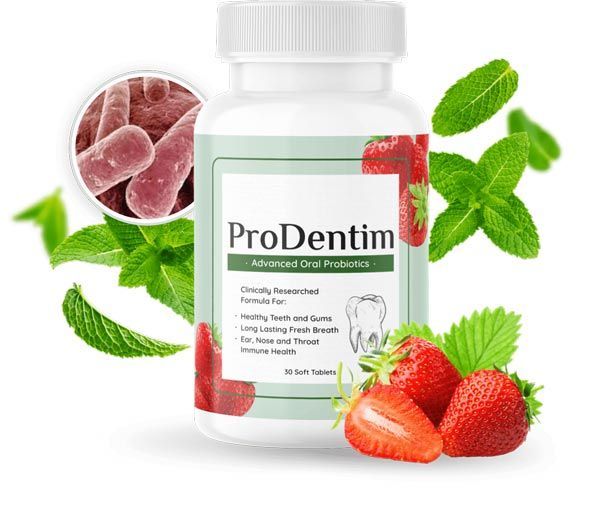
Every ProDentim you chew will support the good health of your gums and teeth.
ProDentim contains a unique blend of 3.5 billion live probiotics and nutrients, which work together to repopulate your mouth with good bacteria and help keep your teeth and gums healthy. This revolutionary product is unlike anything you’ve ever tried before – it’s easy to use, completely safe, and extremely effective.
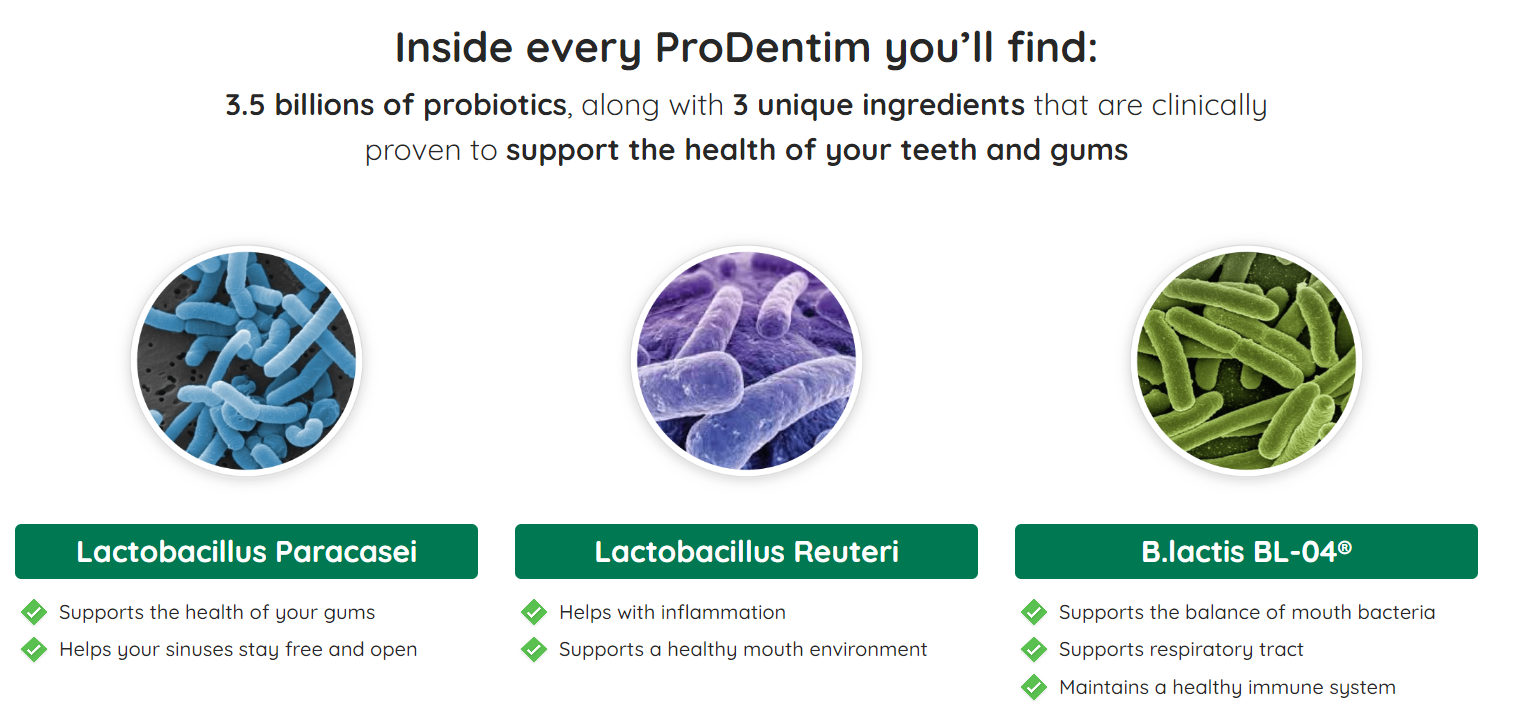
Adding this probiotics to your oral care routine is a great way to promote dental health. ProDentim Probiotics can help prevent cavities, fight gum disease, freshen breath, and even strengthen teeth! So if you're looking for an easy way to take care of your teeth and gums, GET YOUR PRODENTIM HERE and see the benefits for yourself.
DIGESTIVE⁺⁺⁺
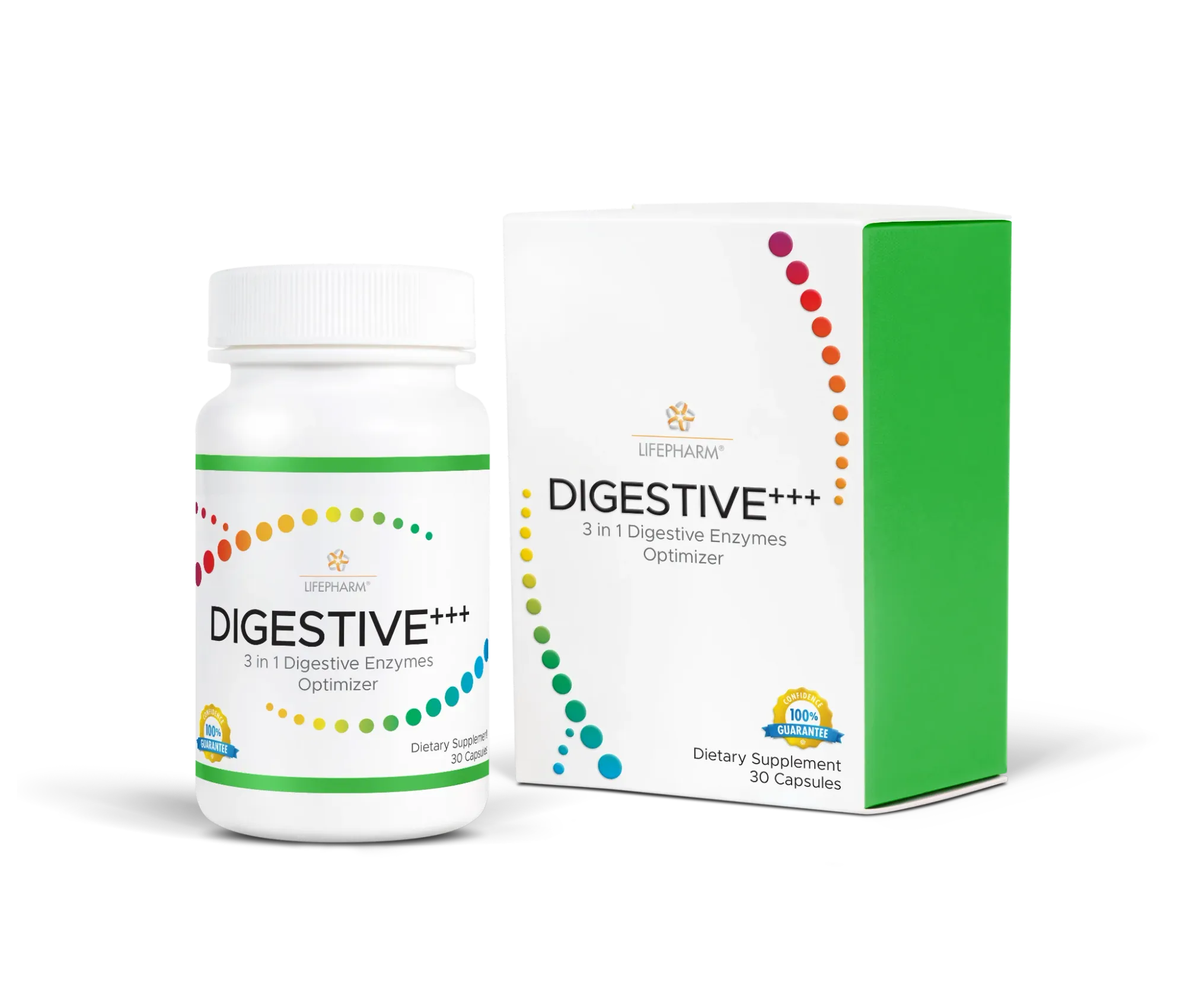
- DIGESTIVE+++ is a proprietary combination of a probiotic, prebiotic, and an enzyme blend created for peak digestion performance. Made with a probiotic called Bacillus Coagulans, which has a spore that allows it to survive in digestive enzymes and acids until reaching the lower digestive tract.
- Studies have shown this probiotic strengthens the integrity of the lining of the colon. Probiotics are good bacteria in your gut that help keep detrimental bacteria from proliferating.
- This prebiotic is a powerful blend of short-chain fructo oligosaccharides, Jerusalem Artichoke, Dandelion Leaves, and Yacon Root. Prebiotics are basically food for the good bacteria in your gut.
- Using both probiotics and prebiotics together increases the good bacteria, which improves the lining of the digestive tract and colon, improving overall gut health.
- DIGESTIVE+++ also has a comprehensive enzyme blend to help your body break down proteins, carbohydrates, lactose (milk sugar), and fats to maximize their benefits. This also supports more effective elimination and less bloating.
Most FAQs about Probiotics
What are Probiotics?
Probiotics are live microorganisms, such as bacteria and yeasts, that provide health benefits when consumed in adequate amounts. These beneficial microorganisms can be found naturally in certain foods or can be taken as dietary supplements.
Probiotics work by colonizing the gut and supporting the balance of the gut microbiota, which is the collection of microorganisms residing in our digestive system.
Probiotics are often referred to as "good bacteria" because they help maintain the overall health of the body. They play a crucial role in various bodily functions, including digestion, immune function, nutrient absorption, and the synthesis of certain vitamins.
There are several strains of probiotics, and each strain may have specific health benefits. Some commonly known strains include Lactobacillus acidophilus, Bifidobacterium bifidum, Lactobacillus casei, and Saccharomyces boulardii, among others.
These strains can be found in various probiotic products, and different strains may target different health conditions or provide specific benefits.
Probiotics are available in different forms, including capsules, tablets, powders, and liquids. They can also be naturally present in certain fermented foods, such as yogurt, kefir, sauerkraut, kimchi, and tempeh.
Incorporating probiotic-rich foods into your diet is a great way to naturally boost your intake of these beneficial microorganisms.
It's important to note that the effectiveness of probiotics may vary from person to person, and it's advisable to consult with a healthcare professional before starting any new supplementation regimen.
How Should I Take Probiotics?
Taking probiotics can be done in several ways. Here are some common methods:
Probiotic Supplements: Probiotics are available in capsule, tablet, powder, or liquid form. Follow the instructions provided on the packaging or as advised by your healthcare professional. Generally, it's recommended to take probiotics with or after a meal to help protect the beneficial bacteria from stomach acid.
Yogurt and Fermented Foods: Some yogurts and other fermented foods contain live bacteria cultures, which can provide probiotic benefits. Look for labels that mention "live and active cultures" to ensure you're consuming probiotics. Enjoy these foods as part of your regular diet.
Probiotic Drinks: There are various probiotic drinks available on the market, such as kefir or kombucha. Follow the instructions on the product label and consume them as recommended.
Probiotic Foods and Snacks: Many foods and snacks are fortified with probiotics. These may include certain types of cereals, granola bars, or even chocolate. Check the labels for information on the specific strains and recommended serving sizes.
Prescription Probiotics: In some cases, healthcare professionals may prescribe specific probiotic supplements to address certain health conditions. Follow the prescribed dosage and instructions carefully.
It's important to note that different probiotics may have specific storage and usage instructions. Always read the product labels or consult your healthcare professional for guidance tailored to your specific needs.
Can I Take Probiotics if I Take Antibiotics?
Yes, it is generally safe to take probiotics while taking antibiotics. Antibiotics can kill both harmful and beneficial bacteria in the gut, which can sometimes lead to digestive issues such as diarrhea or an imbalance in the gut flora.
Probiotics are beneficial bacteria that can help restore the balance of the gut microbiota. Taking probiotics alongside antibiotics can help replenish the beneficial bacteria that may be reduced during antibiotic treatment.
Here are a few guidelines to consider when taking probiotics with antibiotics:
Timing: It's best to take the probiotic supplement at least 2 hours before or after taking the antibiotic. This helps to minimize any potential interaction between the two and ensures that the antibiotic doesn't interfere with the survival and effectiveness of the probiotic bacteria.
Strain Selection: Different probiotic strains have different properties and may offer varying benefits. Look for a probiotic supplement that contains strains known to support gut health, such as Lactobacillus or Bifidobacterium species. Speak with your healthcare professional or pharmacist for recommendations.
Duration: Continue taking the probiotics for a few weeks after completing the antibiotic course to allow the gut microbiota to fully recover.
Consult with a Healthcare Professional: If you have any concerns or specific medical conditions, it's always best to consult with your healthcare professional for personalized advice.
It's important to note that while probiotics can be helpful, they do not replace the need for antibiotics prescribed by a healthcare professional. Antibiotics are essential for treating bacterial infections, and probiotics are used to support gut health during and after antibiotic treatment.
How Probiotics Can Improve Your Oral Health?
Probiotics can play a role in improving oral health by promoting a balanced oral microbiota and supporting the overall health of the mouth. Here are some ways in which probiotics can benefit oral health:
Preventing Oral Infections: Probiotics can help inhibit the growth of harmful bacteria in the mouth, including Streptococcus mutants, which is a major contributor to tooth decay and cavities. By creating a more balanced oral microbiota, probiotics can help reduce the risk of oral infections.
Reducing Bad Breath: Probiotics can help combat bad breath, also known as halitosis. Certain strains of probiotics can reduce the levels of odor-causing bacteria in the mouth, addressing the root cause of bad breath.
Supporting Gum Health: Probiotics may help maintain healthy gums by reducing inflammation and supporting the immune response in the gums. This can be beneficial in preventing or managing gum diseases like gingivitis and periodontitis.
Enhancing Saliva Production: Some probiotics have been shown to stimulate saliva production, which is important for maintaining oral health. Saliva helps cleanse the mouth, neutralize acids, and remineralize teeth.
Preventing Oral Thrush: Probiotics can help prevent oral thrush, a fungal infection caused by Candida yeast. By promoting a healthy balance of bacteria in the mouth, probiotics can limit the overgrowth of Candida and reduce the risk of thrush.
It's worth noting that while probiotics can contribute to oral health, they are not a substitute for regular oral hygiene practices. Brushing your teeth at least twice a day, flossing daily, and visiting your dentist regularly is still essential for maintaining optimal oral health.
If you're considering using probiotics specifically for oral health, consult with your dentist or healthcare professional for guidance on suitable strains and products.
Can Probiotics Help With Leaky Gut?
The concept of "leaky gut" is a topic of ongoing research and debate in the medical community. Leaky gut refers to a condition where the lining of the intestines becomes more permeable, potentially allowing harmful substances to leak into the bloodstream. It is believed to be associated with various health issues, although the exact causes and mechanisms are still being studied.
While probiotics have shown promise in supporting gut health and modulating the gut microbiota, there is limited direct evidence to suggest that probiotics alone can heal or repair a leaky gut.
However, probiotics may play a supportive role in addressing underlying factors that contribute to gut permeability and maintaining overall gut health. Here's how probiotics may potentially be beneficial:
Modulating the Gut Microbiota: Probiotics are live microorganisms that can help restore and maintain a balanced gut microbiota. A healthy microbiota is believed to contribute to the integrity of the gut barrier and reduce gut permeability.
Strengthening the Intestinal Barrier: Some studies suggest that certain probiotic strains may enhance the function of the intestinal barrier by promoting the production of tight junction proteins, which help maintain the integrity of the gut lining.
Reducing Inflammation: Probiotics have been shown to have anti-inflammatory effects in the gut. By reducing gut inflammation, probiotics may help alleviate some of the factors associated with increased intestinal permeability.
Supporting Digestive Health: Probiotics can aid in the digestion and absorption of nutrients, which can indirectly support gut health and potentially reduce stress on the gut.
It's important to note that the effectiveness of probiotics for any specific condition, including leaky gut, can vary depending on individual factors and the specific strains and formulations used.
If you suspect you have a leaky gut or have digestive concerns, it's advisable to consult with a healthcare professional who can provide a proper diagnosis and recommend appropriate treatment options, which may include dietary modifications, lifestyle changes, and possibly probiotic supplementation.
Conclusion
Probiotics are more than just a gut health phenomenon. They have a profound impact on overall well-being, including oral health. By promoting a balanced gut microbiota and supporting oral tissues, probiotics contribute to a healthier mouth. Remember to incorporate probiotic-rich foods into your diet for optimal gut and oral health.
Stay Healthy and Happy!
Relevant Reads>>>
